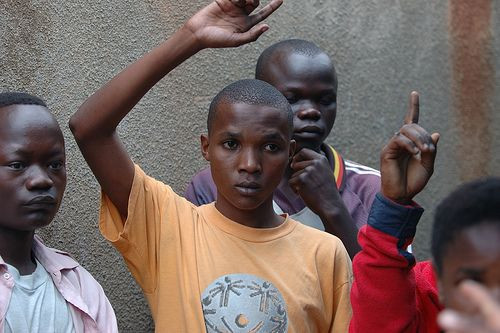Racism Linked To Depression, Anxiety In Kids; Blacks, Hispanics, And Asians At Highest Risk

The painful effects of racism may trigger not only short-term sadness or anger among teens and adolescents, but also deep bouts of depression, anxiety, and other serious mental health issues, a new study finds.
A team of researchers from the University of Melbourne studied 461 cases of racism linked to mental health outcomes, marking the first study of its kind to draw the connection. The study’s lead researcher, Dr. Naomi Priest, of the McCaughey VicHealth Centre for Community Wellbeing, said the study showed racism was an important influencing factor in kids’ developing sense of self-worth.
“The review showed there are strong and consistent relationships between racial discrimination and a range of detrimental health outcomes,” Priest said in a press release, “such as low self-esteem, reduced resilience, increased behavior problems and lower levels of wellbeing.”
Racism most often appeared in cases of direct prejudice or bias between children, or between child and adult. Cases of institutional or systemic racism, such as unequal or preferential treatment in school, were found to be less common. Children reacted most viscerally to interpersonal forms of racism, with the majority of children falling between the ages of 12 and 18 and being of African American, Hispanic, or Asian ethnicity.
Interestingly, the study also found children whose mothers experienced racism were more likely to have poorer birth outcomes. While the researchers do not offer a cause, one explanation is the strong correlation between minority populations and lower socioeconomic status (SES), which would theoretically increase a woman’s likelihood for poorer birth outcomes, as she has less access to adequate health care. In that case, the racism traces back to the woman’s ethnicity, which has ties to her SES, not her health.
Likewise, the researchers found children were most likely to develop depression because of their withdrawal from character-strengthening activities, such as school programs and community sports.
“We know that children who experience poor health and wellbeing are less likely to engage in education, employment and other activities that support them to lead healthy and productive lives and to participate meaningfully in the community,” Priest said.
This link helps explains how racism has such powerful effects on a child’s mental state. While an adult who is established in her career and family may encounter a racist remark and brush it off because she has been equipped throughout her experiences in life to deflect it, children are still developing their sense of worth and belonging. They internalize hateful comments more often as truths, and gradually recuse themselves from activities they would otherwise enjoy.
Priest argued that her team’s findings support the need for addressing the issue in society, be it through educational systems breaking racial taboos or parents helping kids to develop stronger feelings of empathy, so that they can understand why their actions are hurtful or why other kids may lead troubled lives that cause them to be racist.
Roughly 4.3 percent of Americans between 12 and 17 years old reported suffering from depression between 2005 and 2006, according to the Centers for Disease Control and Prevention.



























